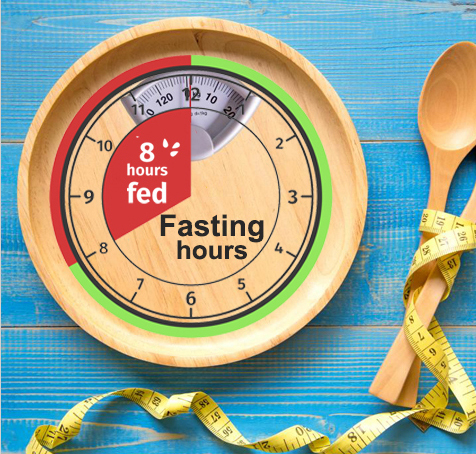Intermittent Fasting: New Research Study Shows Why The New Diet Fad Fails For Some In Terms Of Weight Loss
Source: Intermittent Fasting Jun 08, 2020 5 years, 6 months, 2 weeks, 3 days, 9 hours, 56 minutes ago
Intermittent Fasting: Medical researchers from Nottingham Trent University and Loughborough University have discovered why certain people do not lose weight while on an intermittent fasting program.

The study was published in the medical journal: Science Direct
https://www.sciencedirect.com/science/article/abs/pii/S0195666319315636?dgcid=author
Typically intermittent fasting is a way of losing weight that favors flexibility over calorie counting. It restricts the time you are allowed to eat, which reduces calorie intake by limiting opportunities to eat.
A much adopted version of intermittent fasting is the 5:2 diet, which involves eating a very low-calorie diet (about a quarter of usual calorie intake) for two days each week and unrestricted eating on the other five days. This approach has worked well for some people, but not everyone.
In the latest study, the researchers found that individuals cheat on their intermittent fasting diet, without realizing it.
The study conducted over three days, aimed to find out how eating and physical activity changed around a period of calorie restriction.
A selection of male participants completed two trials. On the first trial day, they were told they would have a very low-calorie diet (about 700 calories) the following day. Throughout the rest of the day, the researchers tracked how much the participants ate and assessed their hunger before and after each meal. Their physical activity was also monitored throughout the day.
Again the next day, participants ate the very low-calorie diet, and were monitored their physical activity. The morning after completing the low-calorie diet day, the researchers measured their food intake at an unrestricted breakfast and assessed their hunger before and after the meal.
Every participant also completed a control trial that followed the same method. During the control trial, participants ate a typical diet (about 2,800 calories) instead of a very low-calorie diet.
The researchers found that participants ate 6% more on the first day of the study and 14% more at the unrestricted breakfast on the low-calorie diet trial. This was despite hunger levels before and after each meal being similar to the control trial. This suggests participants ate more because they knew food intake would be restricted the following day, rather than because they felt hungrier.
Also it was observed that physical activity was also 11% lower the day before eating the low-calorie diet, and 18% lower while eating the low-calorie diet.
Surprisingly, low-intensity physical activity, such as washing the dishes, which tends to be spontaneous behavior rather than consciously planned activities, was the most affected component of physical activity. We found changes in eating and physical activity behavior occur before, during and after a day of low-calorie dieting. These behavioral changes reduce the likelihood of intermittent fasting leading to weight loss.
In order for a diet to lead to weight loss, calories burned must exce
ed calories consumed to produce a calorie deficit. Intermittent fasting diets assume that the large calorie deficit produced by fasting or very low-calorie dieting is not recovered during the unrestricted period, so the calorie deficit is preserved.
However the study showed that eating a little more and reducing spontaneous physical activity may be enough to recover almost half of this calorie deficit. The calorie deficit may also be reduced further at subsequent meals after a very low-calorie diet day.
https://academic.oup.com/ajcn/article/104/6/1545/4564664
Previous studies support these findings. Skipping breakfast for six weeks was shown to reduce physical activity and increase calorie intake at later meals. This was enough to fully compensate for calories skipped at breakfast. This raises the question: is fasting or severe calorie restriction worth the sacrifice?
https://academic.oup.com/ajcn/article/100/2/539/4576482
Most of the time, weight loss from any diet is always likely to be lower than expected.
Interestingly compensatory mechanisms defend against a calorie deficit far more strongly than a calorie surplus. In scientific studies of intermittent fasting, participants are often guided by a dietitian on how many calories they should eat on the unrestricted days. Even with this support, participants in these studies still lose less weight than would be expected if the calorie deficit had been fully preserved.
https://onlinelibrary.wiley.com/doi/full/10.1002/oby.21653 and
https://www.mdpi.com/2072-6643/11/10/2442/htm
The study highlights what and when compensatory behaviors occur. This information can be used to improve the effectiveness of intermittent fasting diets. Being more mindful when eating before and after a period of calorie restriction and incorporating exercise into diet plans, could help increase the likelihood of intermittent fasting leading to weight loss.
It must be noted that intermittent fasting is not a miracle diet, but some individuals may benefit from its flexibility and with a few minor adjustments, it could be even more effective.
For more on
intermittent fasting and other reserch on diets and nutrition, keep on logging to Thailand Medical News.
